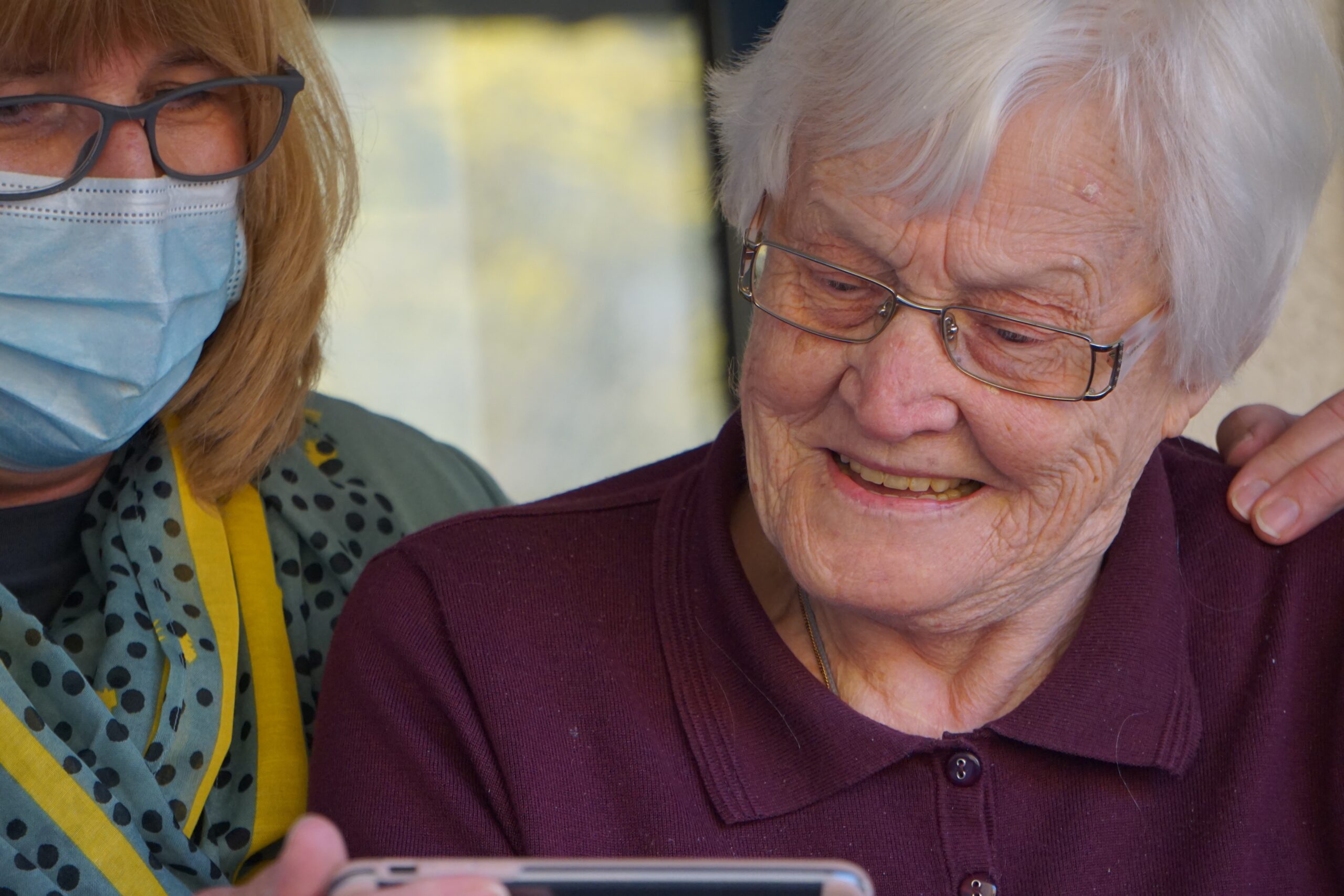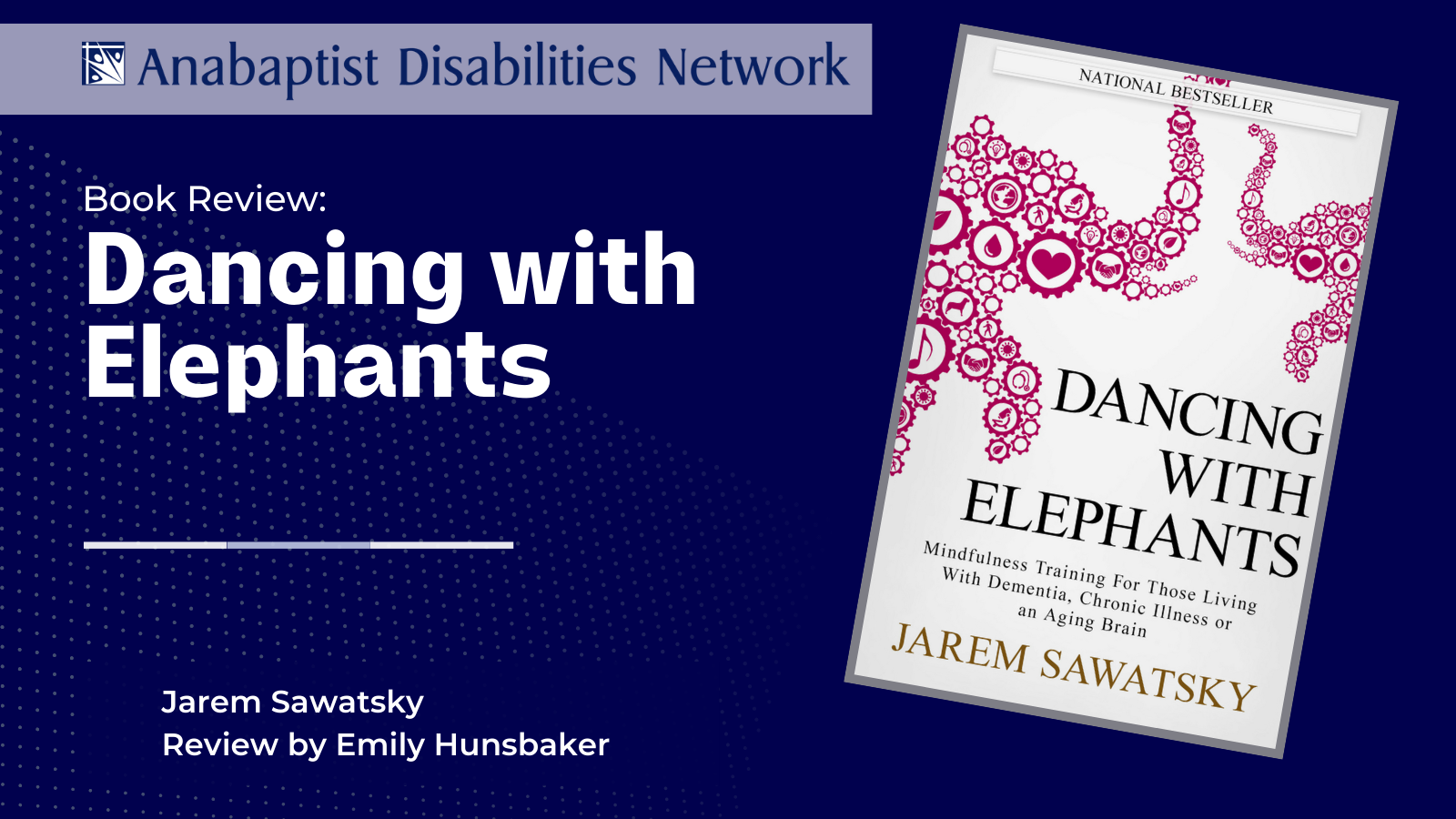Becoming Disabled as we Age
As people age, their bodies change, and new disabilities emerge. Relating to the world becomes more challenging as bodies slow down and senses dull. Tasks that were once easy become taxing to complete, leaving aging people to reckon with the changing landscape of their bodies and abilities.
Congregations can foster a welcoming environment for people who are aging by addressing the barriers faced by people with physical disabilities: vision, hearing, and mobility. Additionally, faith communities can be a place of support as aging people adjust to the changes and challenges of aging, prioritizing relationships over speed, efficiency, and productivity.
Tips for Supporting People as they Age
For Congregations
Accommodations
- Perform a Congregational Accessibility Survey and work to remove barriers for people with hearing, vision, or mobility disabilities.
- Normalize accommodations in worship; older people may not inform you of their declining hearing or sight. Name your own needs to the congregation when leading, preaching, or teaching.
- Instead of asking the congregation to stand, use alternative language: “Please rise in body or in spirit,” or “I invite you into a posture of worship.”
- Routinely announce that assistive listening devices are available; test the devices regularly to ensure they work.
- Offer large-print materials in the same location as standard-print materials.
- When projecting or using screens, use a strong contrast between the words and background. Do not use images behind words.
- Offer communion and other sacred rituals during home visits.
Relationships
- Provide support as the person experiences the loss and change that comes with aging.
- Pair an aging person with a young family or teenager in the congregation; encourage visits, letters, meals, and other relationship building.
- Provide activities that are accessible and build intergenerational relationships. Invite aging people to join these activities. Allow extra time for people who move slowly or need accommodations. Prioritize relationship over efficiency and productivity.
- Host a “Grandparents Afternoon.” Include young children for an afternoon of reading, storytelling, and play.
- Invite older members to teach a skill to other generations (painting, repairs, baking), then schedule a community work day to use this skill.
- Hold a monthly event for older adults in your congregation to connect with each other:
- Game afternoons
- Potluck and/or cooking time
- Hymn sing, music evening
- Craft time
Honoring Gifts
- Involve aging members in the congregation. Learn their gifts and interests and find ways to engage them via Bible study, reading groups, cooking, reading to children, greeting or ushering, etc.
- Invite them to share their stories and testimonies with the congregation and in youth classes.
- Provide opportunities for them to teach and to lead in worship or in Christian education classes.
- Have a mission day: work together at a soup kitchen, clothes closet, or community work project.
For Individuals
- Take time to talk to the aging person at church or schedule a visit at their home. Ask questions about their personal history and experience in the church; listen to their answers.
- Invite them out for coffee or lunch.
- Reach out with frequent phone calls, letters, and cards.
- Ask what barriers they are facing in being involved with the congregation: transportation, assistance into the building, or assistive listening devices.
- Offer transportation to appointments or groceries.
- Ask an aging adult to teach you a skill (knitting, crocheting, woodworking, etc.), or find a shared hobby to do together (puzzling, cooking, quilting, etc.).
- Make connections through music; people of all ages can join together for hymn sings, and talk about their favorite hymns and music.
- If you are a reader, share books with older members who enjoy reading, have a book group.
Resources
-
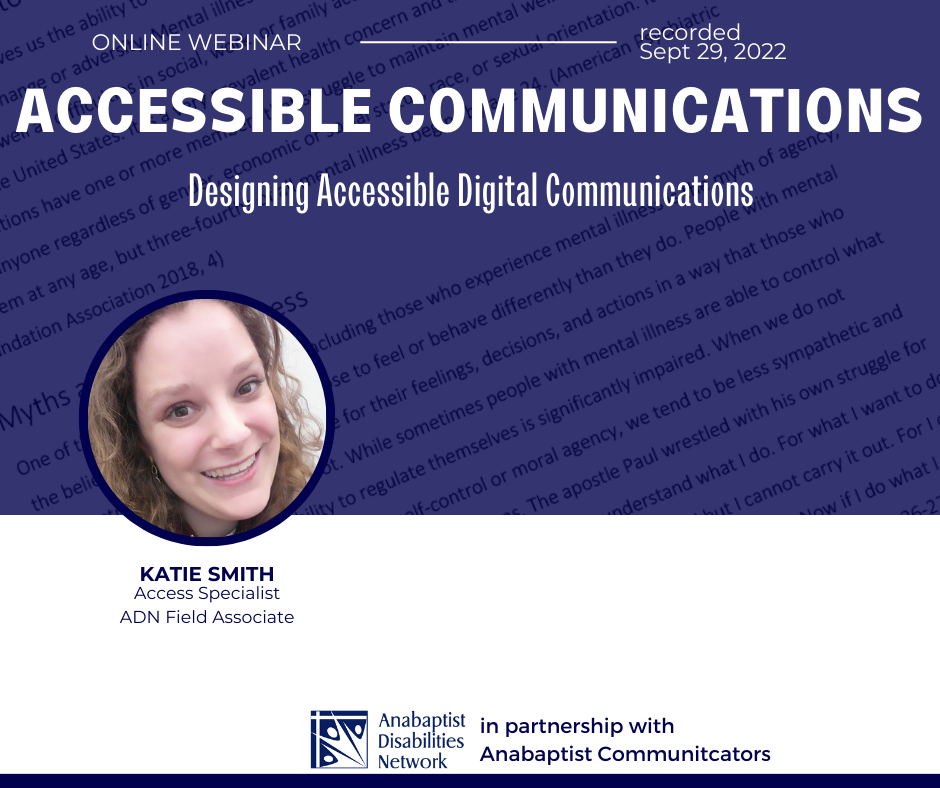
Accessible Digital Communications
ADN field associate Katie Smith leads this workshop on creating print documents that everyone can read and access.
-
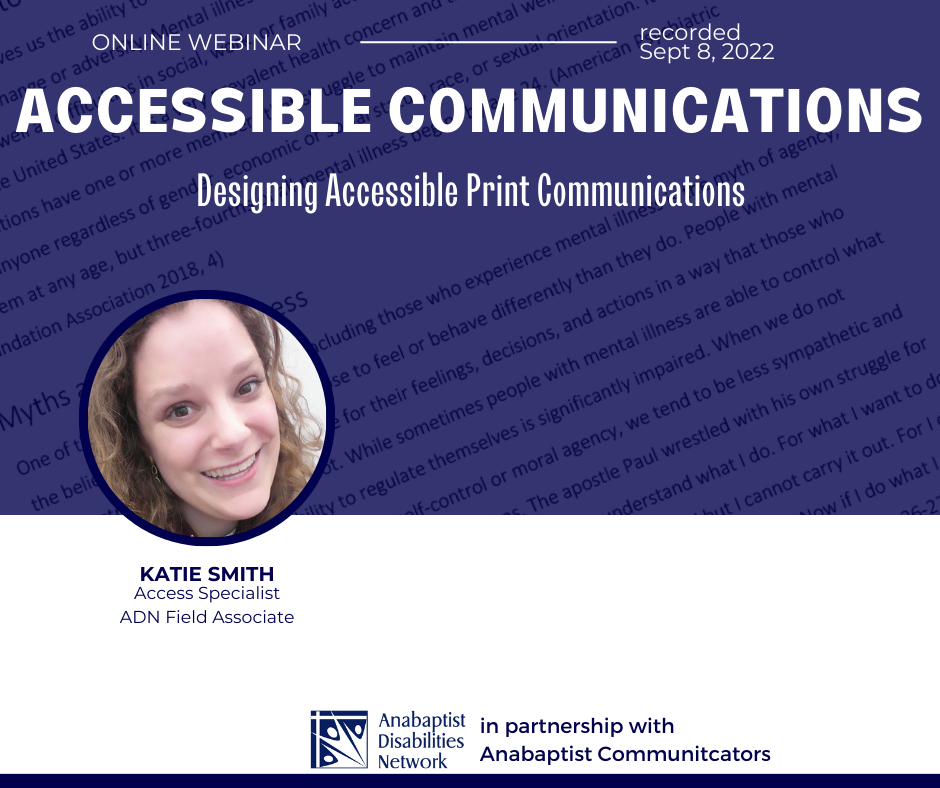
Accessible Print Communications
ADN field associate Katie Smith leads this workshop on creating print documents that everyone can read and access.
Resources from Other Organizations
- Seven Reasons That Your Church Needs Older Adults from the Union Baptist Association
- Six Ways to Engage Older Adults in Worship by Faithward
- 48 Older Adult Ministry Ideas from the United Methodist Church
- Coping with Change and Loss from Coaching Aging Adults
- Embracing Aging: Families Facing Change (YouTube Video)
- Change and getting older is inevitable. How can we make aging the best it can be? Families, experts, and “wise ones” share insights on aging, housing choices, facing illness, and cooperating as siblings in the care of aging parents. Residents of a co-housing community for those over 55 offer attractive alternatives for the aging years.
- Hear from: Ira Byock, MD, Dartmouth-Hitchcock Medical Center; Stella Henry, RN, Author; Dene Peterson, founder of ElderSpirit; Jennie Chin Hansen, former president, AARP; and others.
- A 58-minute video produced by MennoMedia in 2007.
Your Stories
-
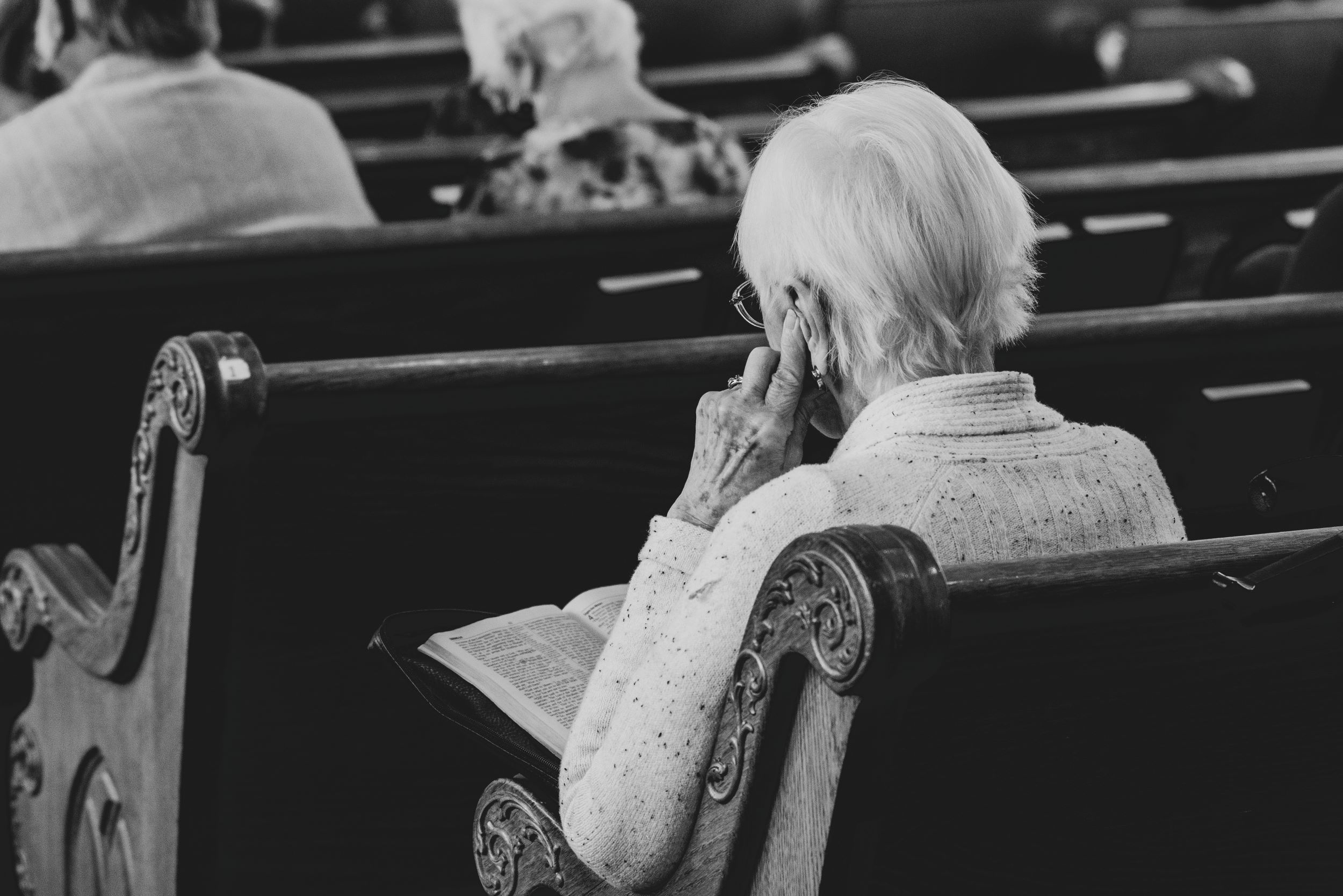
I’m Living with Dementia; are you?
Marie Harnish shares the way her mother’s dementia has impacted the life of her family.


